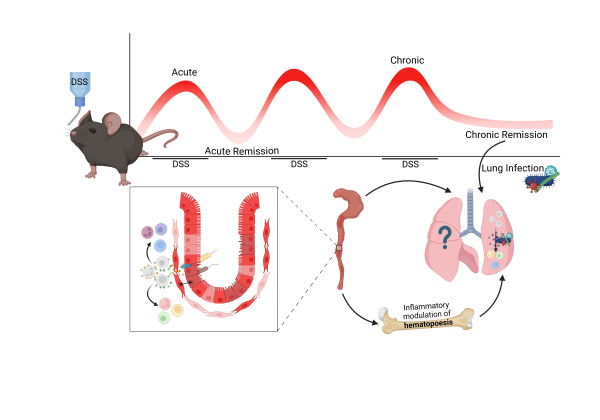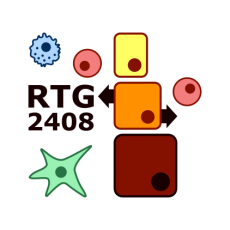Nina Lindemann

Nina Lindemann
P2-3: Long-term local and systemic effects of intestinal inflammation on the immune response to secondary challenges
|
To mimic human inflammatory bowel diseases such as ulcerative colitis (UC) in animal models, mice are repeatedly treated with dextran sodium sulfate (DSS) to induce intestinal inflammation. Different phases can be distinguished, including acute and chronic inflammation and their respective remission phases. The local interactions between intestinal epithelial cells and fibroblasts and their significance for controlling the differentiation of immune cells have not yet been fully clarified and will be investigated in more detail as part of the project. Furthermore, we hypothesize that persistent intestinal inflammation also has a systemic effect and modulates the functionality of immune cells already during their generation in the bone marrow. The inflammation-induced modulation of hematopoiesis may explain the increased susceptibility to lung infections observed in UC patients. In order to test this experimentally, mice will be exposed to a lung infection during the remission phase of chronic intestinal inflammation, and the possible effects of UC on the immune response in the lungs and the course of the lung infection will subsequently be investigated.
|
Photos: by UMMD, Melitta Schubert/Sarah Kossmann









